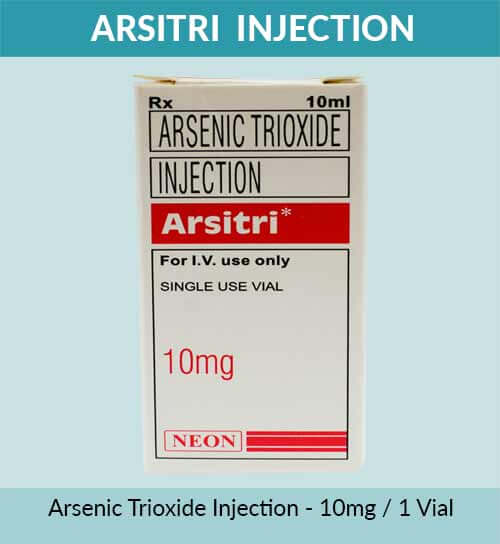Arsenic-Trioxide
Arsenic trioxide is a medication used in the treatment of certain types of cancer, particularly acute promyelocytic leukemia (APL). It belongs to a class of drugs known as arsenic compounds.
Arsenic trioxide works by inducing cell death and inhibiting the growth of cancer cells. It is thought to act through various mechanisms, including the promotion of apoptosis (programmed cell death) and the inhibition of cell proliferation.
The medication is typically administered intravenously under the supervision of healthcare professionals in a hospital or clinical setting. The specific dosage and treatment regimen are determined by the healthcare provider based on the individual’s condition and response to therapy.
Common side effects of arsenic trioxide may include nausea, vomiting, fatigue, and skin changes. More serious side effects, such as heart rhythm abnormalities or liver toxicity, can occur but are less common. Regular monitoring of cardiac function, liver function, and other parameters may be recommended during treatment.
Arsenic trioxide should only be used under the guidance and prescription of a qualified healthcare professional experienced in the treatment of cancer. It may interact with other medications, so it is important to inform the healthcare provider about all medications being taken, including over-the-counter drugs and supplements.
In summary, arsenic trioxide is a medication used in the treatment of certain types of cancer, particularly APL. It works by inducing cell death and inhibiting cancer cell growth. Regular monitoring and adherence to healthcare provider instructions are important during treatment with arsenic trioxide.
Note – The brand names and product descriptions used on this site are for informational purposes only and are the property of their respective owners.

